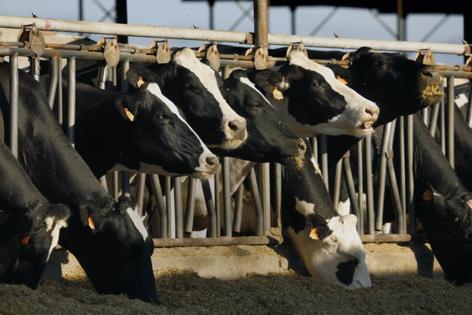Is bird flu in cattle here to stay?
Published in News & Features
Despite assurances from the federal government that bird flu will be eradicated from the nation’s dairy cows, some experts worry the disease is here to stay.
Recently, Eric Deeble, USDA acting senior advisor for H5N1 response, said that the federal government hoped to “eliminate the disease from the dairy herd” without requiring vaccines.
Since the disease was first publicly identified in dairy cattle on March 25, there have been 129 reports of infected herds across 12 states. In the last four weeks, there has been a surge — jumping from 68 confirmed cases on May 28 to nearly twice that many as of June 25. There are no cases in California.
So far, however, the dairy industry has proved reluctant to work with state and federal governments to allow for widespread testing of herds.
To some epidemiologists, this lack of close herd surveillance is a problem. They worry that the virus is spreading unchecked among dairy cows and other animals, and has taken up permanent residence.
David Topham, a professor of microbiology and immunology at the University of Rochester’s Center for Vaccine Biology and Immunology, said he considers H5N1 to be “endemic in animals in North America” — citing its prevalence in wild bird populations as well as its long staying power in domestic poultry.
No one knows how widespread it is in cattle, Topham said, because testing has largely targeted symptomatic cows and herds. “But I suspect the closer we look, the more we’ll find, and I don’t know if we’re going to cull our entire cattle herds and start over again.”
Topham said he understands the industry’s reluctance to permit government scientists onto farms “because we’re going to want to see everything, and we’re going to report everything that we see, and that might be bad for business. ... But until we have all that information, I don’t think we will have control.”
Federal officials have announced a pilot bulk milk testing program that includes Kansas, Nebraska, New Mexico and Texas. Farmers in these states can voluntarily enroll to have bulk milk samples tested for the virus. If their samples test negative for three weeks, they will be able to move their herds across state lines without additional testing — something they are currently unable to do.
So far, only one herd in each state has signed up.
...continued
©2024 Los Angeles Times. Visit at latimes.com. Distributed by Tribune Content Agency, LLC.







Comments